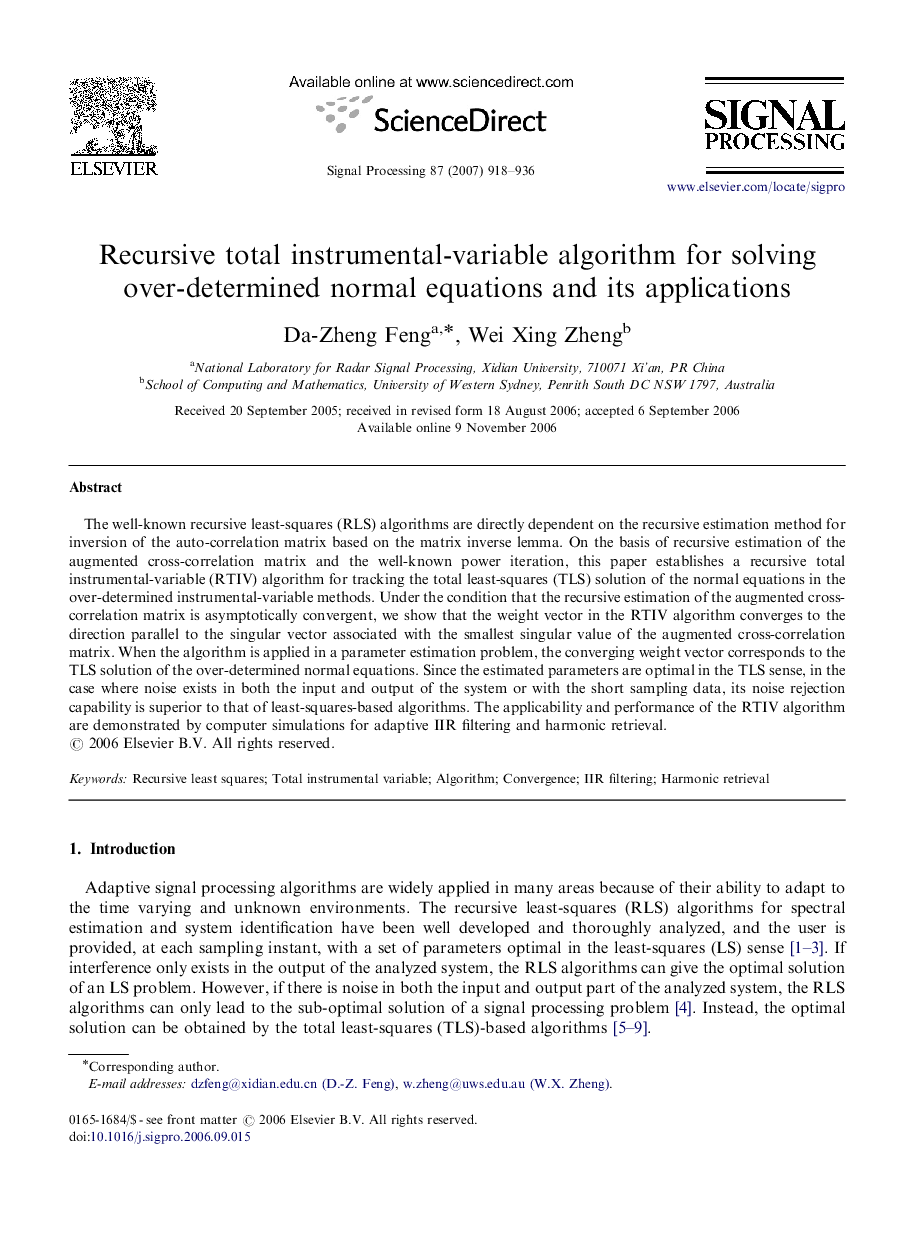| Article ID | Journal | Published Year | Pages | File Type |
|---|---|---|---|---|
| 567248 | Signal Processing | 2007 | 19 Pages |
The well-known recursive least-squares (RLS) algorithms are directly dependent on the recursive estimation method for inversion of the auto-correlation matrix based on the matrix inverse lemma. On the basis of recursive estimation of the augmented cross-correlation matrix and the well-known power iteration, this paper establishes a recursive total instrumental-variable (RTIV) algorithm for tracking the total least-squares (TLS) solution of the normal equations in the over-determined instrumental-variable methods. Under the condition that the recursive estimation of the augmented cross-correlation matrix is asymptotically convergent, we show that the weight vector in the RTIV algorithm converges to the direction parallel to the singular vector associated with the smallest singular value of the augmented cross-correlation matrix. When the algorithm is applied in a parameter estimation problem, the converging weight vector corresponds to the TLS solution of the over-determined normal equations. Since the estimated parameters are optimal in the TLS sense, in the case where noise exists in both the input and output of the system or with the short sampling data, its noise rejection capability is superior to that of least-squares-based algorithms. The applicability and performance of the RTIV algorithm are demonstrated by computer simulations for adaptive IIR filtering and harmonic retrieval.
